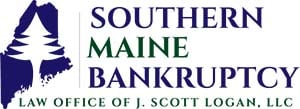Determining The Best Course Of Action For Addressing Your Financial Circumstances
Many people file Chapter 7 bankruptcy because they don’t understand the alternatives. My law firm, the Law Office of J. Scott Logan, LLC, focuses on several types of bankruptcy filings and other debt relief options. I can help you determine the course that makes the most sense for you.
For some people who are not eligible for Chapter 7 debt relief – and even for many more who are eligible – Chapter 13 allows them to reorganize their debts in a way that saves them much more money than Chapter 7 would. Chapter 13 is for “wage earners,” or people with a regular source of income. In Chapter 13, you repay your creditors what you can afford over three to five years. In many ways, it is the perfect alternative to both debt consolidation, where creditors tell you the minimum they will accept, and debt settlement, where you have to pay a lump sum immediately and deal with potential tax consequences. Chapter 13 also allows you to pay back the excess value of any property you want to keep but could not protect in Chapter 7.
Understanding The Benefits Of Chapter 13
You won’t be forced to repay more than you can afford because you create a budget that can include things like food, clothing and home maintenance, and even things like pet care, smoking, recreation and savings. In many cases, credit card companies receive 5% or less over five years, with the rest being discharged without tax consequences.
Chapter 13 is usually the best choice if you have recent income tax debt. The Internal Revenue Service (IRS) will consider “offers in compromise” outside of bankruptcy but generally expects you to liquidate nonessential assets and propose a repayment plan of around five years. In Chapter 13, you can discharge most penalties and freeze the interest. You have up to five years to repay the debt owed, including interest as of the date you filed. The tax authorities may assess some interest but cannot seek payment until your case is complete.
In Chapter 13, you can often “strip off” a second mortgage loan if your house is valued at less than what is owed on the first mortgage and treat the second mortgage like a credit card, often discharging 95% or more of the debt. You can also “cure” a first mortgage up until the date of a foreclosure sale by repaying the amount you are behind over three to five years.
Chapter 13 also allows for a “cramdown” of certain secured debts to the value of the property they are attached to. If you bought your car more than two-and-a-half years before you file, you could repay the value, plus 4% to 6% interest, over up to five years. You can also repay the value of business equipment or other property purchased more than one year before you file. This means we can shave off thousands of dollars of car debt bringing your payments down by hundreds of dollars.
You can also take the time to catch up on your child support or alimony payments over time without having to appear in divorce court or even pay less than 100% if you stay in Chapter 13 a full five years, but the remainder is not subject to discharge. If you have a court order for nonsupport divisions of property, those obligations are subject to discharge in Chapter 13, but not in Chapter 7.
Courts are also more lenient with regard to efforts to prevent discharge of debts due to fraud or personal injury negligence cases when you are in Chapter 13. In most cases, a Chapter 13 plan will involve a payment that is several hundred dollars less each month than you would have paid had you filed Chapter 7 and reaffirmed your car and house loans. Chapter 13 is much more economical than Chapter 7 for most people with car loans, a second mortgage, divorce obligations, or tax debt.
Is There An Income Cap For Filing Chapter 13?
There is no income cap on eligibility for Chapter 13, but you must have a source of income, have less than $395,000 in unsecured debt (credit cards, medical bills, most taxes) and less than $1.2 million in secured debts. You also must have regular income and commit to a minimum of a three-year repayment plan. Chapter 13 involves the same preparation and review of a petition, pre-filing and post-filing courses, and attendance at a meeting of creditors. There are also many motions and hearings involved, but your attorney handles those. You should not need to appear in court again after the meeting with the trustee, as long as you make your monthly payments on time.
Contact My Office In Portland For More Information
Like Chapter 7, the cost of filing Chapter 13 can vary. There are upfront expenses, including attorney fees, a court filing fee and one for the mandatory credit counseling. There can be an administrative reserve set aside in your plan for paying other fees. I try to offer the most competitive fee among experienced bankruptcy practitioners. Call the Law Office of J. Scott Logan, LLC, at 207-613-8590 to schedule an appointment to learn more about my services. You may also reach out to me online through my secure website to do the same.
Law Office of J. Scott Logan, LLC, is a debt relief agency. I help people file for bankruptcy relief under the Bankruptcy Code.

